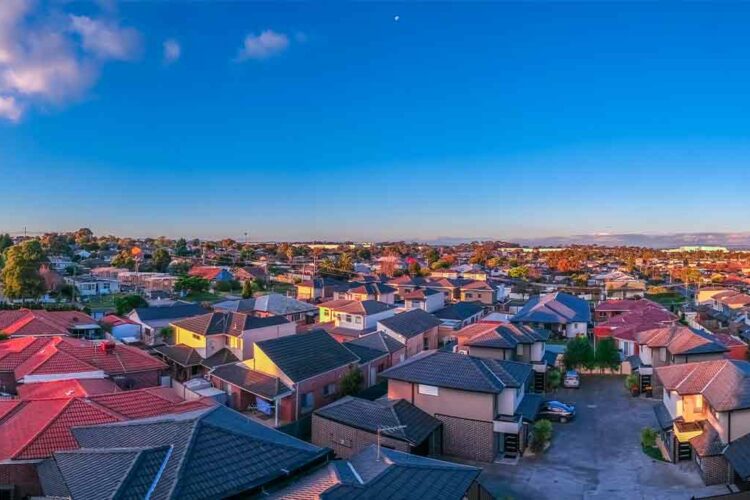When buying a property, people will usually check its price first. In real estate, we often talk about the market price of a house, which is the price at which it could be sold on the open market.
However, the market price is different from the market value. The market price is determined by whatever price the seller agrees with to sell their property, which can be more or less than the actual market value.
The market value of a property is defined as its worth in the marketplace. It is based on the professional opinion of a third-party valuer, who is licensed to advise individuals or businesses on the value of their property.
In this article, we discuss the different ways to calculate the market value of a property so you can appropriately know the value of a property you are buying or selling.
Valuation v appraisal
Before we get to the methods of valuation that you can do, let’s differentiate valuation from an appraisal.
Valuation is an assessment of a property’s value based on several factors. It is a formal process done by a certified practising valuer, which is thorough research on the location, condition, features, and size of the property to determine its market value. After which, they provide a valuation report, a legal document that contains all the facts and information about a property.
There are several uses for a valuation report, such as lenders that use it as a basis for the value of the property in assessing a mortgage loan application.
The professional fee charged by a certified practising valuer will depend on your location. Because they are legally responsible for the information they provide, their services are not free.
On the other hand, a property appraisal is a professional opinion by a real estate agent on the value of a property. It is only considered a guide to the pricing since appraisals have no legal significance.
Agents will sometimes offer an appraisal free of charge in order to win your custom. However, not all agents are qualified to do appraisals, and some are better at it than others.
If you need an expert opinion on the market value of your home but don’t want to use your local agent’s services (for whatever reason), look into hiring someone outside the industry who has been professionally trained in valuing homes and commercial properties.
But if you’re still unsure of the need for a formal valuation or appraisal and just want to get a ballpark figure, there are several online valuation tools available out there with property calculators to help you get a general idea of prices for a certain location.
How to calculate the market value of a property
There are many different ways to determine what the value might be for your property. For this article, we break it down into three simple ways that you can easily do even without professional help.
Three ways to find the market value of a property:
- Comparable sales method
- Income method
- Cost method
Comparable sales method
The comparable sales method is one of the most common ways to determine the value of a property. Not only is it applicable to residential properties, but to commercial properties as well.
To do this, you need to take note of the features of the property whose value you’re trying to identify. Find similar or comparable properties that have been sold in the last three to six months, keeping the closing price into consideration.
Let’s say you’re looking for a house with five bedrooms. You check all of the properties in the same suburb with five bedrooms that were recently sold and notice how they will have different price points based on the size of the house, rooms and features that it comes with. This house might have a bigger garden, while another house might have a bigger parking space, the price can be more or less the same.
Look at the price per square foot for each property — a measure that gives you an apples-to-apples comparison between different homes and neighbourhoods. From there, you can get more precise by considering other relevant factors such as location, number of bedrooms/baths, age and size of the lot.
Income method
The income method is a common valuation method for income-producing properties, such as rental apartments and leased spaces for commercial use. It uses the income the property generated to determine its value.
To calculate this, you divide the net operating income (NOI) by its capitalisation rate. The net operating income (NOI) is the net annual income of the rental property minus all operating expenses, while capitalisation or cap rate refers to the returns you expect from a rental property.
You define the capitalisation rate based on how much the returns you want to achieve from the property. For example, an apartment building with a net operating income (NOI) of $850,000 and a chosen capitalisation rate of 9 per cent is valued at $9.4 million.
The most accurate way to determine market value with this approach would be to examine similar properties that are currently on the market and sold in your area.
This will give you an idea of what buyers are willing to pay for similar properties in your area, but there is no guarantee that those same buyers would pay that price for yours if it were listed for sale today.
Cost method
The cost method calculates the value of empty land or a property that is yet to be built. It is a reliable way to figure out the value of a commercial property, industrial property, or bare land.
First, you need to estimate the value of the vacant land. Determine the estimated cost for the construction of a home or building, including its materials and labour, then deduct an estimated amount for its depreciation. Finally, add the land value to the depreciated construction cost.
Let’s say you want to build a fulfilment centre on land that is valued at $50,000. The size of the land is 5,000 square feet, and the quotation given by a contractor is $50 per square foot or $250,000 in total. Your account for its depreciation is by 25 per cent, leaving you with a total construction cost of $187,500. You then add the land value of $50,000 to the depreciated construction cost of $187,500 and find the property to be valued at $237,000.
This method is usually for special-use properties or newly constructed properties that don’t have similar properties for comparison. It starts by calculating how much would it cost to build a new, rebuild a replica or similar property with comparable materials, features, and amenities.
Check your local market conditions
Market conditions are essential to consider when determining the value of your property. If you’re thinking about selling, understanding what similar homes are selling for in your neighbourhood will help you identify a realistic price range and understand how much interest there is in the market at this time.
In addition to comparing recent sales prices with the asking price, it’s also useful to look at historical data on home sales in your area over time. This information can reveal trends that may affect future values (for example, if there has been an increase in demand due to population growth).
Be careful in deciding how to value your property
When you’re on the selling end of the transaction and deciding how to value your property, you have to be careful since there are several different approaches you can take when determining the market value of a piece of real estate.
The most common method is comparing similar properties that have recently sold in the area and multiplying those numbers by what you think yours will sell for. This works well if there are many similar properties available nearby; however, if there aren’t any recent sales in your area with comparable features and size — or if the ones that do exist were bought under different circumstances than yours — you may want to use another approach.
Another option is using an appraiser or realtor’s estimate based on their experience observing trends over time at various price levels across geographic regions where homes tend to sell for more than others due mostly (but not entirely) to factors outside their own control such as climate zone type.
The market value of a property is worth the highest price that a buyer is willing to pay and a seller is willing to accept
In the real estate world, we often hear the phrase market value. But what exactly is market value?
Market value is simply the highest price that a buyer is willing to pay and a seller is willing to accept. It’s not always the same as what a property sells for because there are other factors that come into play.
For example, if you ask how much your house would be worth on today’s market, it may be listed at $200,000 but sell for more or less than that depending on whether you have an open house when buyers are looking (and how competitive their offers are).
And even if your home was listed for $200,000 and then sold for exactly $200,000 just days later, does this mean its market value was precisely equal to its sales price? No — because it could have been purchased by someone willing to pay more!
So keep all these variables in mind when thinking about market value:
- The property is valued (e.g., single-family home) versus commercial property or land;
- Whether or not there’s any competition among buyers;
- How long does it take before finding another buyer with the money ready to spend on such purchases
Conclusion
There are many different methods of calculating the market value of a property. Some are more complicated than others, and some have more limitations. The most important thing is to get an estimate that is as accurate as possible so that you can make an informed decision about selling or buying property in your area.


